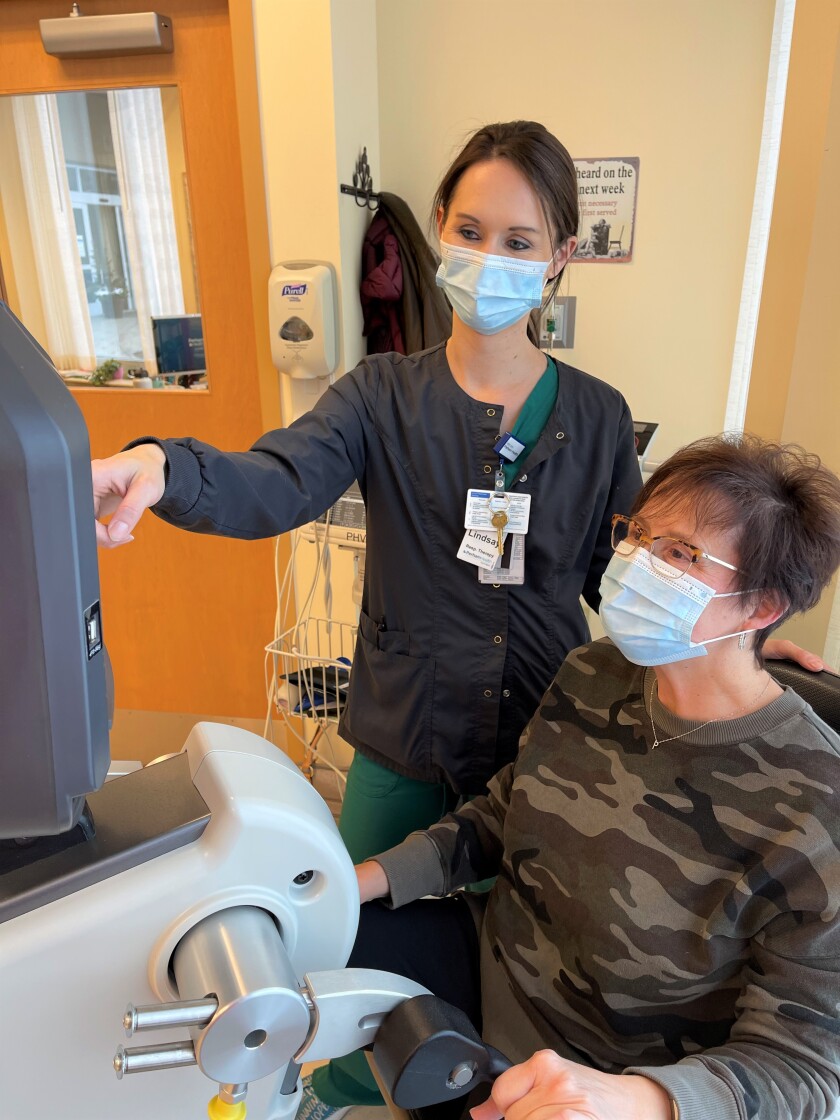PERHAM, Minn. — Some people avoid or don’t think about planning ahead for emergency health care scenarios, but Perham Health Social Worker Erin Schultz believes advance care planning is vital for everyone over the age of 18.
“(Advance care planning) is an important conversation,” Schultz said. “No matter where you are in life and what your age is, we’re all going to traverse this life.”
No one likes to consider the worst “what ifs” of their personal health and mortality, but Schultz said worst-case scenarios are something people need to be prepared for. Having a care plan in place not only helps loved ones and health care workers make treatment decisions, but also guarantees a patient’s wishes are fulfilled.
Contributed / Perham Health
“It’s a great guide for a health care team,” Schultz said.
Advance care planning can be daunting for those who don’t know where to start, but Schultz is experienced at talking individuals and families through the process, and she has some advice for anyone looking to fill out an advance care plan document, also known as a health care directive.
First, she suggests, ask yourself these questions:
- Who is the person I trust most to make decisions on behalf of my health, if I’m unable?
- Would it be too emotionally hard for that person, and/or is that person likely to follow through with my wishes?
- What losses have I experienced, and what do I think I’d want if I were in a similar situation?
- What are my individual health needs and diagnoses, and what crises are feasible for me to experience in the future?
- What quality of life do I want?
Next, talk these things over with your health care provider, who can either help walk you through the decisions or point you to a social worker like Schultz for guidance. The paperwork needed to create a health care directive can be obtained from any hospital worker, and completed directives are put in a patient’s file for providers to find in case of an emergency.
“Even if you go on vacation or something, you can have a note on you that says, ‘I have a directive here and here,'” Schultz said. That way, if an emergency happens, the health care organization looking after you can reach out for your directive and make sure your wishes are followed.

Contributed / Perham Health
Once you have a directive on file, Schultz suggests revisiting it every decade or so, because people come and go from your life and your wishes may change. If you keep your plan up-to-date, then what becomes of you in a health care crisis will always be what you want most.
“Advance health care planning affects anyone, no matter where you live,” Schultz said. “It’s about planning for the unexpected, and it’s all about trying to make sure your wishes are followed. It’s an important document and an important conversation.”
Schultz also emphasized the importance of speaking with the person you list in your directive as a decision-maker. That way, the person is aware of their responsibilities in an emergency, and you can be sure they’d be able to follow through.
With questions about advance care planning, or to schedule a time to speak with a Perham Health professional about it, call 218-347-4500 or email phinformation@perhamhealth.org.

